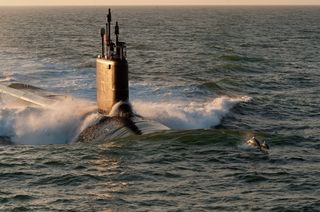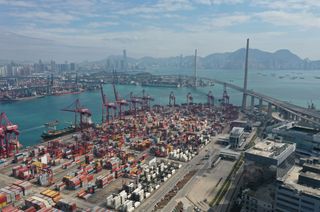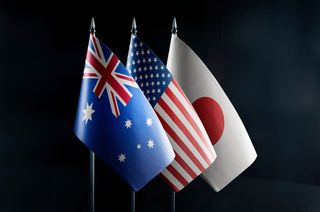ABC The Drum
If Australia taking dramatic action on climate change is merely symbolic, what are we to make of our commitment to the fight again Islamic State forces?
By now the Abbott Government's rationale against taking dramatic action to combat climate change is familiar to most Australians. Its logic follows four steps:
1) Australia's contribution is just a drop in the ocean; 2) As such, any action Australia takes will largely be symbolic; 3) As such, we can put to one side any assessment of how serious the original threat is and concentrate on whether we should make a symbolic gesture to this global problem; 4) Hence, the choice becomes: what is going to be the economic cost to Australia for this merely symbolic gesture?
When considering Australia's contribution in the fight against Islamic State, I would turn this argument around on them.
Australia's deployment of up to eight fighter jets, four support aircraft and 200 Special Forces is not sufficient to make a strategic difference on the ground. So, like in the climate change debate, we can put to one side arguments about "per capita" contributions or whether Australia is "punching above its weight" and instead make a hardnosed assessment of its physical effect.
When compared against the United States' forces, Australia's current contribution to the international coalition is largely symbolic. Whether IS is degraded, destroyed or continues to expand the territory under its control will not be significantly influenced by Australia's current contribution. So, if we want to be pragmatic, like in regards to climate change, we need to ask whether this symbolic gesture is worth it.
Prime Minister Tony Abbott has speculated that the bill for Australia's war against IS will come in at about $500 million a year. This official figure will be much lower than the actual costs, as the added wear and tear on personnel and machines will not show up on balance sheets for a few years yet. Similarly, the costs associated with support staff here in Australia will not be factored in, but is there all the same.
A second potential cost is that to Australia's security. Opinion polling is showing that most Australians believe that our actions against IS are making us less secure. This might be right, but probably only marginally. The major direct threat to Australia is not from the IS fighters themselves. There are currently only an estimated 31,000 IS fighters that are battling on four main fronts as dispersed as Damascus, Kobane, Mosul and Baghdad. The idea that IS commanders could spare fighters to return to Europe, North America or Asia to conduct terrorist operations is unlikely.
If an attack occurs in Australia it will most likely be from those that are finding it increasingly difficult to travel to the Middle East. Frustrated that they can't directly join the fight, they may feel obliged to take violent action closer to home. As such, it might be that Australia's military actions in the Middle East will make these individuals' violent desires easier to self-rationalise, but in all likelihood they would have found an excuse to carry them out anyway.
On the other side of the ledger, it might be argued that there are benefits to the US–Australia alliance of contributing to the coalition. This is a fairly weak argument. Australia and the United States currently share more overlap of strategic interests than at any time since 1945. There is little need to convince Washington of the importance of the US–Australia alliance or the Indo–Pacific region. The long-term trend towards greater US involvement in the region and, in particular, the US-Australian alliance will not be affected one way or the other by our symbolic contribution to the fight against IS.
So, we can largely limit the costs of our involvement to the dollar sum (and potentially the loss of our soldiers' lives). Confronted by a "budget emergency", is $500 million (and this a is conservative sum) worth symbolism? I would argue that Australia's small symbolic contribution to fighting IS is a luxury that we, as a nation, can currently do without purchasing.
There is, however, one significant difference between climate change and the fight against IS. That is, even if Australia was to cut its emissions to zero, it would not significantly affect global temperatures. It would be a positive symbolic gesture and show moral leadership, but have no practical difference. In contrast, there is no reason why the Abbott Government needs to keep Australia's contribution to the fight against IS at mere symbolic levels.
Unlike climate change, Australia could make a significant contribution to the course of the war against IS. Hypothetically, if IS was as big a threat to Australia as the political hyperbole suggests, then the Government could throw three regular brigades at IS, call up its reserves, introduce conscription and raise Defence's share of GDP to World War II levels.
However, this level of commitment to the war against IS is completely unrealistic. So, we are left with a simple question: is half a billion dollars a year over an indefinite period worth mere symbolism?
This article was originally published at ABC The Drum




